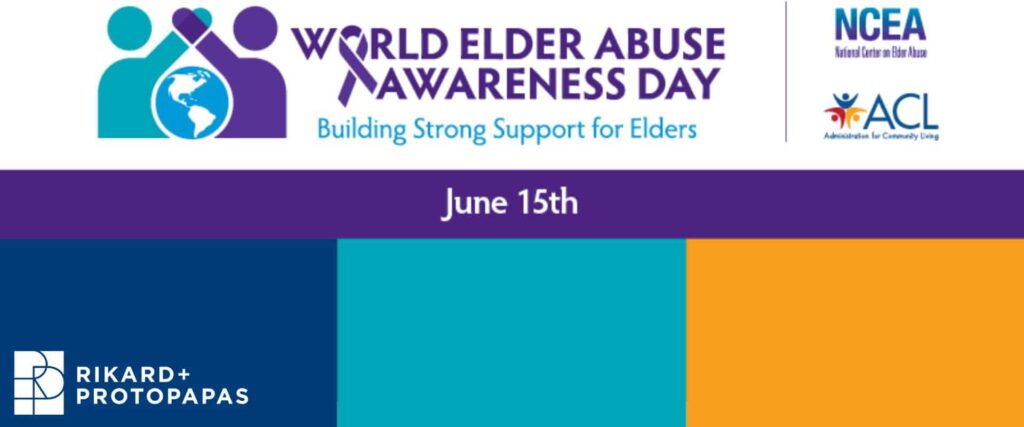
Join us in raising awareness for Elder Abuse #WEAAD
World Elder Abuse Awareness Day (WEAAD) was established on June 15, 2006, by the International Network for the Prevention of Elder Abuse and the World Health Organization at the United Nations. June 15th is a day to bring attention to widespread elder abuse which has become a global public health and human rights issue.
WEAAD serves as a call-to-action for individuals and organizations around the world to unite against the abuse, neglect, and exploitation of our elders. It is also an opportunity for communities to better understand the abuse of our elders and how it affects everyone.
What is Elder Abuse?
Elder abuse refers to the intentional or negligent acts by a caregiver or trusted individual that cause harm to an older person. Abuse is not always physical and can include neglect or isolation, sexual abuse, financial abuse and exploitation, and emotional or psychological abuse.
Every year, an estimated 1 in 10 older Americans are victims of elder abuse and only 1 in 24 cases of abuse are even reported. Annually, nearly 5 million older adults experience some form of abuse, neglect, or exploitation. Abuse and neglect cases increased significantly during the pandemic and continue to be impacted partially by nationwide staffing shortages.
Nursing Home and Assisted Living Abuse & Neglect
Long term care, assisted living, and nursing home facilities are often the only option for family members who require constant care. Residents in these homes have a right to be free of abuse and neglect, but these facilities often fail to provide adequate staffing, supplies, services, and training to properly care for our loved ones.
Laws require nursing homes to provide services and activities for all residents to help “attain or maintain [their] highest practicable physical, mental, and psychological well-being.” However, we constantly see families devastated by the abuse or neglect our elders receive in these homes. Families and friends must be aware of what abuse looks like and act on behalf of their vulnerable loved ones when needed.
Physical Signs of Abuse & Neglect
- Broken bones, bruises, burns, cuts, sores, welts
- Untreated bed sores or pressure ulcers
- Dirtiness, malnutrition or dehydration
- Poor personal hygiene – dental issues, unkept nails, matted or dirty hair
- Unclean living conditions
- Lack of medical aids – glasses, walker, cane, dentures, hearing aids, medications
- Unexplained sexually transmitted diseases
- Torn, stained or bloody clothing
- Isolation – not offered the opportunity to interact with others in the home or community
- Over or under-medicating
- Unusual changes in behavior or sleep
- Fear or anxiety
- Suddenly withdrawn from family and friends
- Loss of abilities – such as walking, incontinence
- Unexplained injuries
*This is not an exhaustive list because abuse takes many different forms. Visit the National Center of Elder Abuse for more resources or contact our legal team today for more information.
Elder Abuse & Neglect Attorneys
As Elder Abuse attorneys, we are unfortunately all too familiar with the abuse and exploitation of our older community members. Sadly, nursing home abuse and neglect is a rapidly growing problem in the United States. These victims of abuse may not be able to verbalize their needs and pain, so it is crucial that families are aware of the typical signs of abuse before placing a loved one in these facilities.
Our attorneys also encourage people to contact us immediately if they think their loved ones are victims of abuse, neglect, or exploitation at a nursing home or assisted living facility. We can help you understand their rights and investigate the care your family members are receiving.
Please do not wait to contact our firm if you have any questions or concerns regarding the care of your loved one. Rikard & Protopapas attorneys bring years of experience, trusted legal help, and support you can depend on when you need it most. Contact us today for a free consultation. *
Visit the World Elder Abuse Awareness Day website for research, ways to prevent elder abuse, how to get involved locally, and more here: https://eldermistreatment.usc.edu/weaad-home/about/

